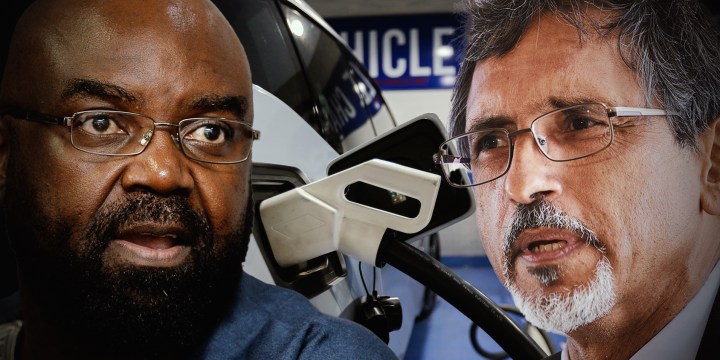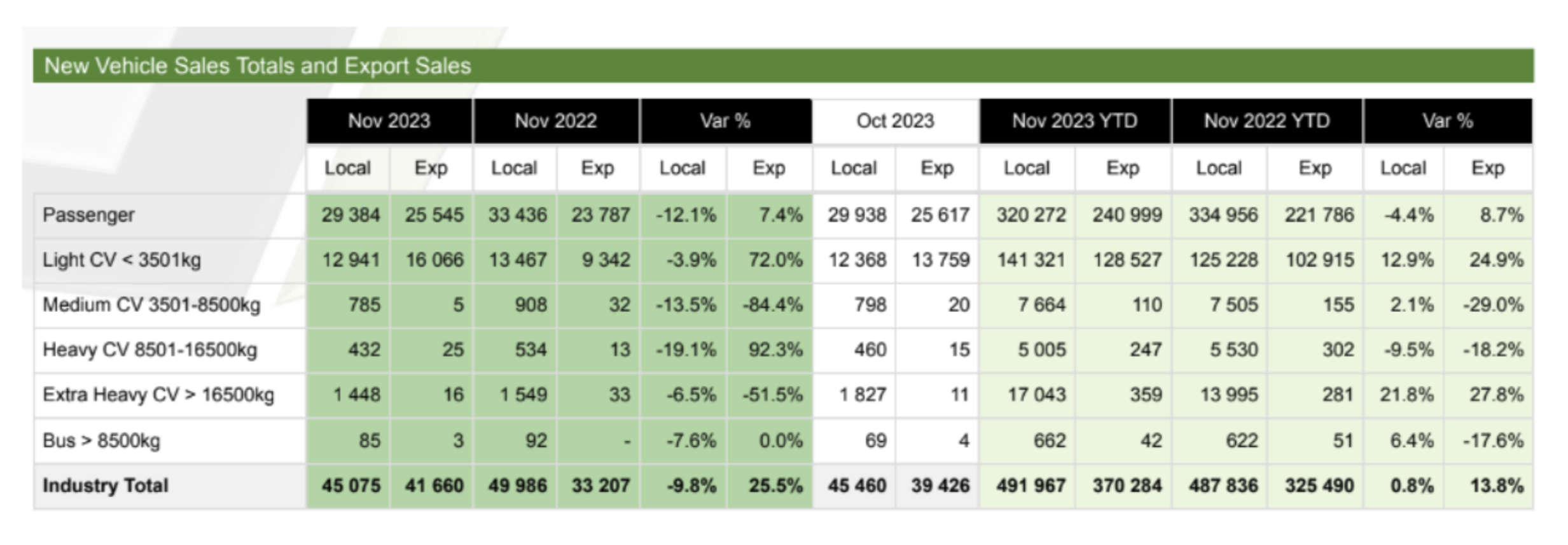NEW EV ROADMAP
Better late than never: DTIC finally releases electric vehicle white paper

Trade and industry minister, Ebrahim Patel, says jobs are a huge concern but that South Africa needs to get on the road to a greener future. It’s high time because Naamsa has reported the fourth monthly decline in vehicle sales.
Days after Naamsa announced the fourth consecutive monthly decline in vehicle sales – heavily affected by the logistical nightmare at the country’s ports and freight rail networks, which it said is having a devastating impact on the automotive value chain – the Department of Trade, Industry and Competition (DTIC) has finally released the Electric Vehicles White Paper.
Blaming the delay on the need to weigh up the impact on the labour market – it will inevitably entail job losses and require reskilling – DTIC Minister Ebrahim Patel said it wasn’t a simple matter.
“What do you do with the more than 100,000 service station attendants and mechanics? Because we don’t control technological development, and it may be that everybody ultimately ends up charging their cars at home… so it’s (about) managing those transitions.
“But the line of march can’t change. If we get stuck in a high-carbon emission world, then there’s nothing to look forward to in future. So we must make this transition.”
The white paper, he said, is an “instrument” in the roadmap that includes the National Treasury’s plans to implement tax and expenditure measures to support the motoring industry’s transition to new electric vehicles (NEVs, which include hybrid vehicles).
South Africa still has no EV manufacturing capability, but an optimistic Patel envisages that manufacturers could start producing EVs by 2026.
Patel said any cost-benefit analysis of the Just Energy Transition is complicated and, in South Africa, will necessitate a phased process: first focusing on developing EV production capacity, then on allocating the fiscal resources to drive the purchasing of EVs in the local market.
“In the second phase, we anticipate that the volumes would be quite modest, for a few reasons. One of which is that the price differential is very significant. We expect the price differential to come down over the next seven to nine years.”
South Africa currently taxes EVs at a rate of 25%, while imported internal combustion engines (ICE) attract import duties of 18%.
February Budget statement
On 1 November, during the mini-budget, Finance Minister Enoch Godongwana stalled, saying the government had plans to implement tax and expenditure measures to support the automotive sector in its transition to a greener economy, but that those would be announced in February’s Budget statement.
At the time, Naamsa CEO Mikel Mabasa said while they were disappointed that the minister had decided to kick the NEV policy announcement can to February next year, Naamsa was pleased to hear that the National Treasury had plans to implement tax and expenditure measures for the transition to NEVs.
“We expected more from the minister yesterday after numerous engagements we had with (the) government on this topic leading to the budget announcement.
“Government understands our challenges as a vehicle-producing country with bigger ambitions to grow our global influence as we move to NEVs.
“Effectively, the minister has bought himself more time to announce details for NEV policy, which will now be during the 2024 Budget Review, with considerations to domestic market demand stimulus measures, establishment of renewable energy-based charging infrastructure, and production support,” Mabasa said.
The white paper’s release is long overdue: the green paper, then named the Auto Green Paper on the Advancement of New Energy Vehicles, was released on 27 May 2021.
On 13 October, Naamsa, in frustration, released its own industry EV roadmap to integrate South Africa into the global EV value chain, saying South Africa needed to kick-start both the production and sales of EVs.
Noting that the European Union had exports of R129.7-billion, or 64.3% of South Africa’s total export value of R201.7-billion, Naamsa said SA’s biggest problem was that 40% of all vehicle sales by 2030 will be EVs – and by 2040, that number is likely to increase to 80%.
The EU has also announced a ban on sales of ICE vehicles by 2035, as has the UK, which rescinded its earlier deadline of 2030.
Mabasa warned that South Africa cannot ignore EVs if the country wants to continue doing business with Europe.
“It will have a huge impact on the country if we lose R201-billion in export earnings a year. We don’t want our main export markets to say that they are no longer interested in ICEs because of their emission targets and that they are taking their business elsewhere. We need to remain relevant.”
The white paper notes that the adoption of EVs has increased globally, driven by government incentives such as tax breaks and targeted subsidies for producers and consumers, and trends in demand.
The automotive sector’s productivity is heavily reliant on infrastructure investment, a sustainable energy supply and the revitalisation of the country’s ports, roads and rail network, said Naamsa in its sales update on 1 December.
Mabasa blamed the decline in vehicle sales on the return of Stage 6 rolling blackouts and Transnet’s disastrous supply chain disruptions.
All new vehicle market segments were in decline: the November 2023 market was down by 9.8% and recorded 45,075 registrations — down year-on-year from 49,986.
About 38,224 units or 84.8% were dealer sales, 9.5% were to car rental agencies, 3.1% to the government and 2.6% to corporate fleets.

In the first half of this year, only 501 vehicles sold were battery-electric – that’s a 127% increase on 2022 figures. DM



















 Become an Insider
Become an Insider
Keep Patel away from the planning, not that he considers anything urgent.
This plonker should stick to the important stuff like compiling lists of what you can and can’t buy like he did in the disastrous covid lockdown or concentrate fully on presiding of the complete the collapse of . . . trade and industry.
His opinion on these matters is as relevant as is Ramokgopa’s on electricity supply and Ramaphosa’s on high speed rail networks, smart cities or unicorn farming.
It seems to me that an EV future is being forced on us by the developed economies of the world. It is not a practical technology for South Africa except in limited urban use due to range limitation. Most of our electricity is produced from coal and will be for a long time. There is no ecological benefit, we are just moving the pollution from one place to another.
“The automotive sector’s productivity is heavily reliant on infrastructure investment, a sustainable energy supply and the revitalisation of the country’s ports, roads and rail network, said Naamsa in its sales update on 1 December.”
Bummer. Given who’s in charge of running all of those into the ground things aren’t looking up for the members of Naamsa. Patel and the rest of his gang of anachronisms will continue to communist harder and harder until the job of shuttering automotive manufacture in SA is done.
“But the line of march can’t change. If we get stuck in a high-carbon emission world, then there’s nothing to look forward to in future. So we must make this transition.”
And his opinion is relevant how?
The same clown that banned t-shirts, “open-toed” shoes & grilled chicken during Scam19?
Who cares what they think? They wont be making any policy decisions after the Gangster Comrades are ousted at the next election. The only decision Patel will be making is what he’s watching on tv..
Total nonsense. We already make cars just for export. There is no reason why we could not make electric cars for export only.